
Models refers to the formalization of linguistic functioning and the cognitive and neurocognitive processes underlying language in phonology, morphology, syntax and semantics in voiced and signed languages (LSF), as well as formalization in natural language processing.
Dynamics refers to the study of linguistic, cognitive and neurocognitive changes induced by the acquisition of a first or second language, which can be part of a sociolinguistic, didactic or clinical linguistic perspective.
Corpus as methodological resources that federate the research of the laboratory, in the fields of textual, diachronic or discursive linguistics, in written linguistics, and in oral linguistics and in experimental psycholinguistics, thus being part of a data science perspective.













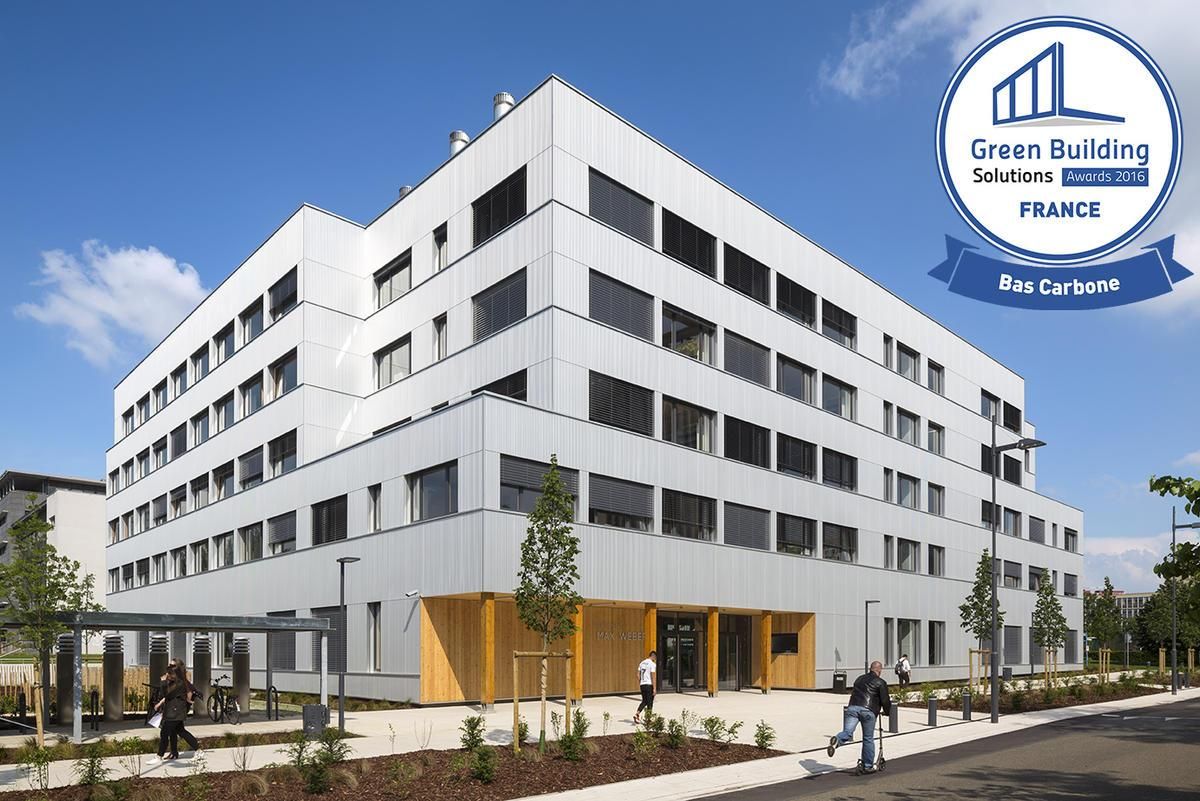

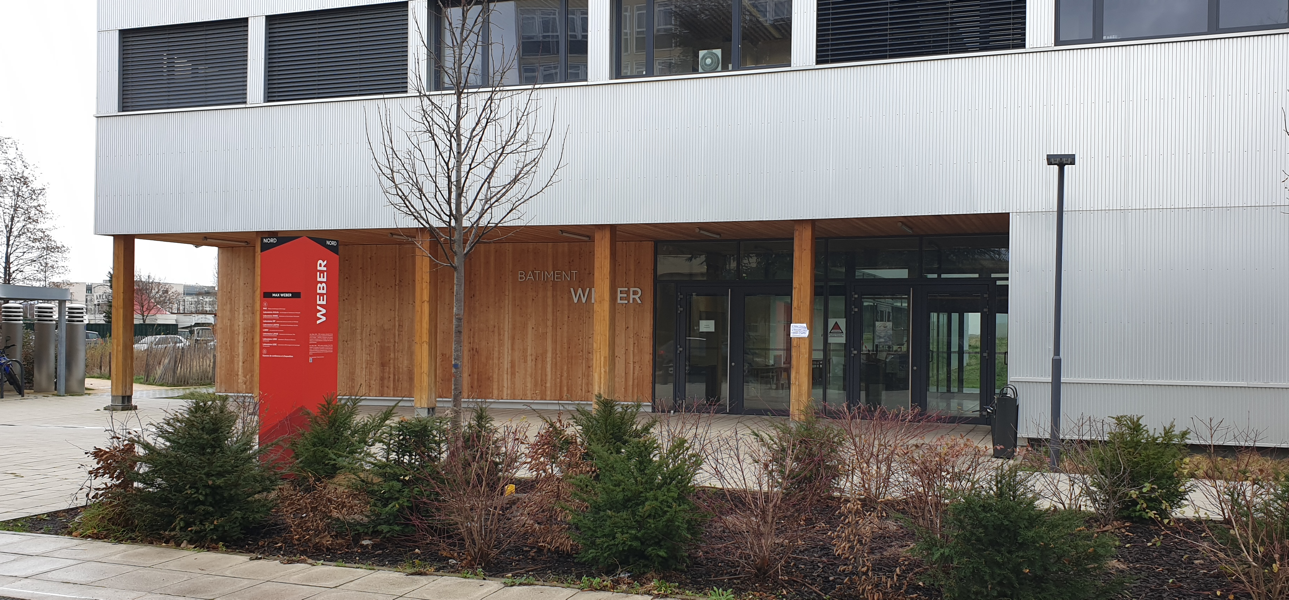





81 membres statutaires
36 doctorants
Membre de écri+ (NCU-PIA3) / consortium CORLI (IR*Huma-Num) / fédération S2CH (CNRS) / plateforme MobiKid (Sesame IDF)

Nous serons ravi.es d’avoir des retours les plus diversifiés en vue de l’amélioration de l’outil. Précisément, l’outil est évolutif et sera progressivement enrichi. Nous avons pensé l’interface dans un esprit collaboratif, et vos commentaires sont les bienvenus : vous trouverez pour cela un formulaire de commentaire en bas de chaque page.


Ce numéro rassemble une série de recherches portant sur l’écrit en L2 dans différents contextes universitaires en France et en Europe. Les travaux présentés se penchent sur une variété de genres textuels (essai argumenté, écrit académique ou scientifique, rédaction créative, entre autres) et offrent un éclairage pluriel sur les enjeux formels ou rédactionnels liés à l’écriture en L2. Ils ont en commun de se concentrer sur l’apport des recherches basées sur les corpus d’apprenants dans la compréhension de ces enjeux. Le potentiel d’exploitation didactique des corpus d’apprenants est souligné dans un certain nombre de contributions. Par ailleurs, les corpus présentés et étudiés offrent un panorama multilingue de la production écrite en L2, avec notamment l’anglais, le français, le mandarin, le slovène et langues apparentées et le turc.




Que ce soit chez les enfants dont les fonctions du langage sont en cours de développement, chez les adultes souffrant de troubles consécutifs à une atteinte neurologique ou encore chez les personnes âgées, il est indispensable d’effectuer un diagnostic précis des troubles et de leur origine pour prendre en charge efficacement les patients. Les atypies langagières peuvent interférer avec la bonne analyse de ces troubles et il est difficile de faire la disctinction entre une particularité individuelle et un trouble installé. Les tests orthophoniques et psychologiques ne peuvent prendre en compte toutes les dimensions du patient : sociales, culturelles, retards du langage versus troubles du langage, vieillissement normal versus vieillissement pathologique, etc.
Cet ouvrage vise à vous donner non seulement matière à réflexion mais aussi des clés de discrimination.



Les diagrammes sont des dispositifs privilégiés dans la recherche en sciences du langage. Outils permettant le raisonnement dans de nombreux
domaines de la connaissance humaine selon Ch. S. Peirce, les diagrammes peuvent être considérés comme de véritables formalisations des relations
entre concepts et entités. Dans cet ouvrage, nous nous posons collectivement les questions des raisonnements associés aux diagrammes, des formalisations liées à ces derniers et de la typologie des représentations graphiques en sciences du langage.

En se fondant sur l’analyse de situations authentiques vidéo-enregistrées, ainsi que sur des entretiens et de nombreux échanges avec les professionnels impliqués (médecins généralistes, psychologues, psychiatres, infirmiers, assistants sociaux, interprètes), les différentes contributions de cet ouvrage permettent de mieux comprendre le fonctionnement de la communication entre demandeurs d’asile et professionnels de santé lorsqu’elle passe par l’intermédiaire d’un interprète. L’ouvrage combine une approche très fine des interactions avec interprète, une prise en compte du cadre plus large des institutions où l’interprétariat prend place (hôpitaux, dispensaires, Pass…), et plus largement encore, du contexte sociopolitique actuel.

Communication et intercompréhension : Regards croisés de la pragmatique interculturelle et de la pragmatique contrastive.
Fabienne Baider, Georgeta Cislaru, « Communication et intercompréhension : Regards croisés de la pragmatique interculturelle et de la pragmatique contrastive », LANGAGES Nº 222 (2/2021), pp. 7-24, Armand Colin.

Cet ouvrage, unique en son genre, traite des rituels de politesse privilégiés en français et en japonais en contexte électronique. Il apporte un éclairage inédit sur l’évolution des pratiques communicatives mises en œuvre par les cyberscripteurs dans leurs e-mails, qu’il met en regard avec des paramètres culturels, relationnels et générationnels. En ce sens, il déconstruit l’illusion d’uniformité des pratiques communicatives que peut générer l’usage quotidien et partagé d’une même technologie, le courrier électronique.
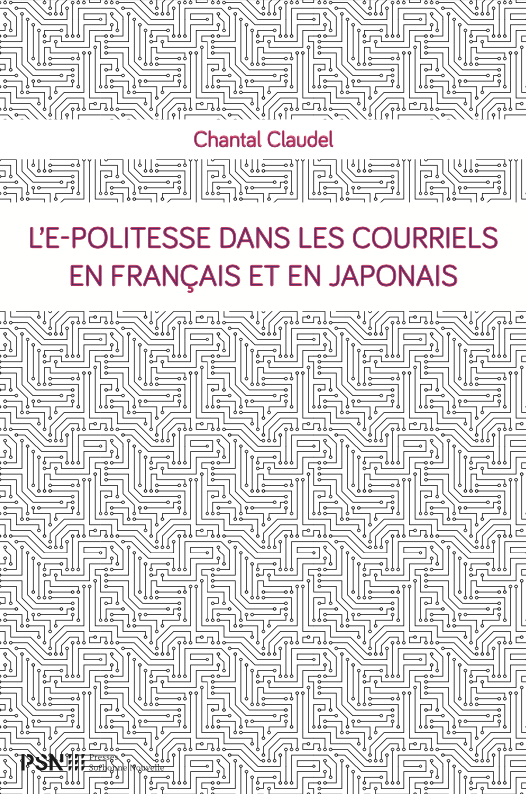
Études linguistiques et textuelles (collection du Crem)
En quoi consistent les notes de bas de pages – et que peut apporter la réponse à cette question à tous ceux que l’écrit intéresse ou concerne ?
Première du genre en linguistique française, la présente étude part de l’appel de note. Ce signe de ponctuation, parce qu’il articule deux textes dans le même espace graphique, est un puissant outil. Il génère une structure syntaxique bilinéaire chargée de multiples valeurs énonciatives.
Julie Lefebvre est maître de conférences en sciences du langage à l’Université Paris Nanterre, rattachée au laboratoire MoDyCo (UMR 7114 du CNRS).

Éléments de morpho-syntaxe diachronique
Si l’on trouve facilement des ouvrages de phonologie et de morphologie de l’italien pour un public universitaire, les ouvrages portant sur la syntaxe des textes anciens italiens, et écrits pour un public francophone sont plus rares.
C’est pour répondre à la curiosité de ses étudiants que l’auteure a élaboré ce livre original, nourri par sa formation de syntacticienne et ouvert à la dimension dialectale italienne contemporaine. Les faits de langue exposés, au-delà de l’anecdotique, ouvrent des réflexions plus larges sur la langue. La terminologie grammaticale est toujours précisée en tête de chapitre, les exemples systématiquement situés dans leur contexte pour une compréhension plus aisée des phénomènes, les exercices et leur correction révèlent la finesse des choix linguistiques des auteurs.
Loin d’être un exercice rébarbatif, l’observation des textes anciens fait ressortir les potentialités foisonnantes de la langue et constitue un jeu dynamique à l’image des paroles gelées de Rabelais. Que la lecture en soit joyeuse et ouvre à la découverte captivante des auteurs anciens italiens !
Bruxelles, 2022. 486 p., 39 ill. n/b.
pb. ISBN 978-2-8076-1807-7
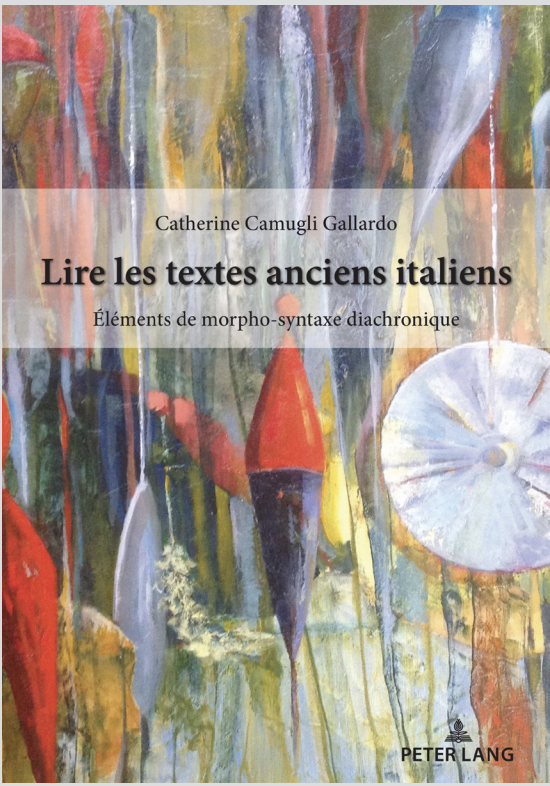
L’analyse des discours sous leurs diverses formes, de même que les questionnements sur le sens et l’énonciation constituent, dès le premier numéro, le terrain de prédilection des Carnets du Cediscor : tant que les discours sont produits et circulent au sein des communautés, on peut en observer le ressort énonciatif et l’effet sur le monde.

La intensidad en las lenguas románicas como estrategia comunicativa
El volumen del año 2021 cuenta con el monográfico “La intensidad en las lenguas románicas como estrategia comunicativa”, coordinado por Mercedes Banegas Saorín (U. Polytechnique Hauts-de-France) y Clara Romero (U. de Paris). Cuenta con ocho artículos de prestigiosos lingüistas especializados en este campo.
Publicado: 29-07-2021

Conçu comme une introduction générale à la syntaxe, cet ouvrage présente les notions de base nécessaires à une étude de la combinaison des unités lexicales et grammaticales au sein d’un énoncé. Sans se placer dans un cadre préconçu, l’ouvrage étudie les différentes possibilités pour la représentation des structures syntaxiques, en fonction des principes généraux et des critères particuliers retenus.

Volume 12, Number 1, 2021 Special Issue Language, Plasticity and Learning: Developmental Issues.
John Benjamins Publishing Company

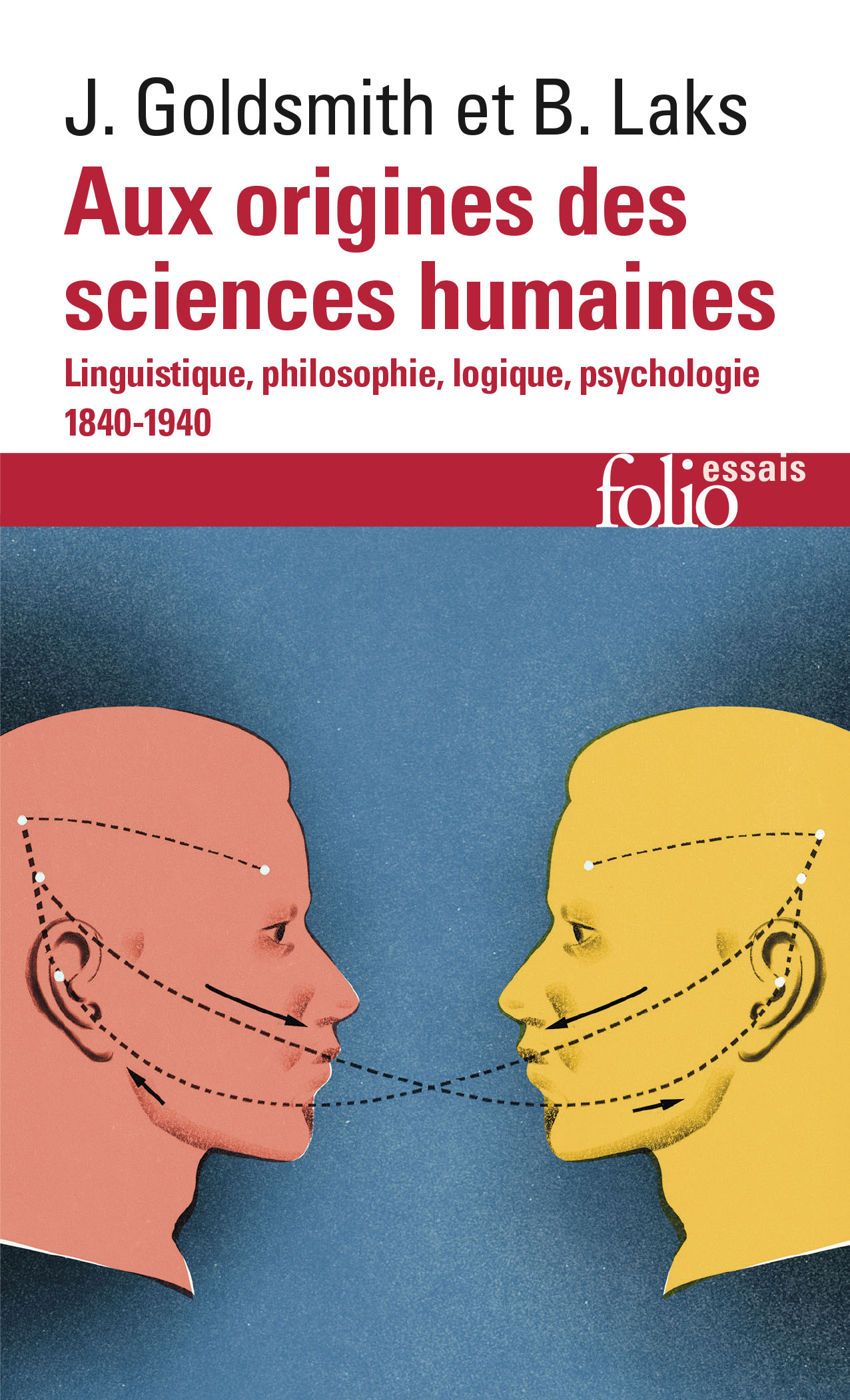

The 3 research centers of the laboratory
The general objective of the unit project is to study linguistic functioning and the impact that linguistic variations can have on grammar and on the functioning of linguistic mechanisms. The new project of the research unit is structured in three poles and three transversal axes. “Corpus-Based Modeling and Linguistics”, “Language Practices: Speech, Texts, Grammars”, and “Psycholinguistics, Neurocognition, Acquisitions and Variations” constitute these three poles, centered respectively on language as a set of productions, in as social practices, and as a cognitive object.
Restez informés
Gardez le contact avec le laboratoire et soyez informé des dernières publications, événements, thèses et actualités en vous inscrivant à la newsletter.



